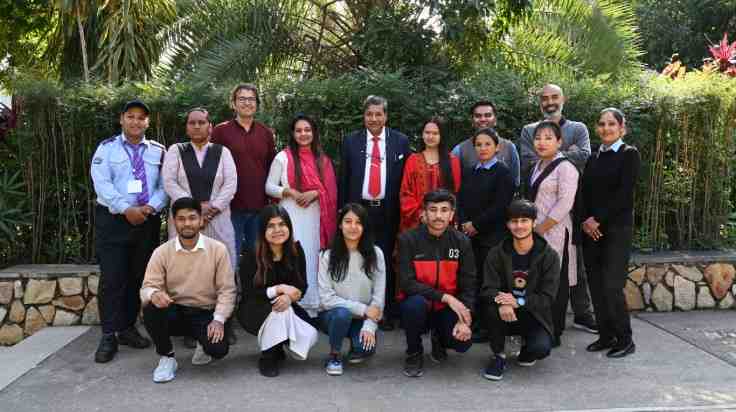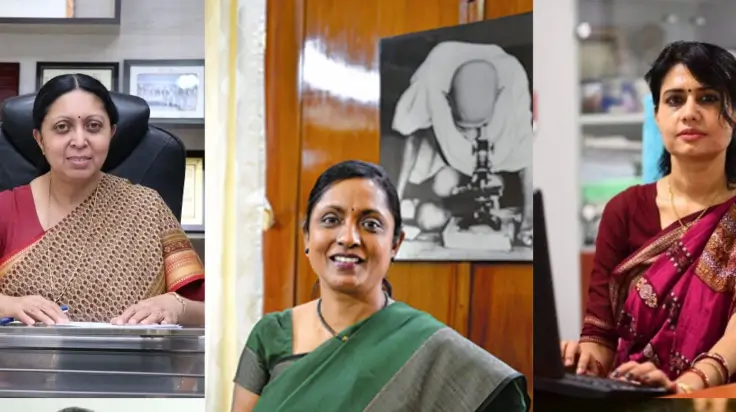Executive Education Programs by UPES to Power ESG Leaders of Tomorrow
- Suryansh Gaur
- Published 30/08/2024

Rising temperatures and growing inequalities have intensified the need for greater corporate responsibility. To address these environmental and social issues, companies are shifting from managing traditional risks to creating positive societal and environmental impacts by focusing on designing, building, scaling, and managing impactful initiatives. This shift, known as Impact Capitalism or Capitalism 2.0, requires new leadership roles like Chief Impact Officers (CIOs), Chief Sustainability Officers (CSOs), and Heads of ESG, who integrate impact into an organisation’s core values while balancing the triple bottom line — People, Planet, and Profit.
Need for Impact Leadership
The growing demand for impact leadership has highlighted the need for versatile leaders skilled in areas such as Impact Finance, Development Economics, Corporate Governance, Impact Entrepreneurship, and Behavioural Science, especially with a focus on underserved communities. However, a significant skill gap exists; according to the Closing the Sustainability Skills Gap Report (2022) by Microsoft, nearly 60% of sustainability professionals lack formal education in these critical areas. Current training models are insufficient to meet evolving industry needs, leading to a shortage of specialised research, content, and education for these roles.
According to a 2023 report by the World Economic Forum (WEF), 44% of businesses globally report a lack of skilled professionals who understand sustainability challenges and opportunities, indicating a growing gap in impact-oriented skills. A study by LinkedIn in 2024 highlighted that roles in sustainability and impact have seen a 74% increase in job postings over the past five years, while the availability of candidates with the requisite skills has only increased by 16%. This stark contrast underscores the urgent need for educational programs to pivot towards equipping students with the necessary skills to fill these roles.
How UPES is Shaping Tomorrow’s Leaders
Recognising the need to bridge this gap, UPES, in collaboration with Aspire Circle, has established the RISE Center (Research on Impact, Sustainability, and ESG), set to be inaugurated on September 21, 2024. This Center aims to equip leaders with the knowledge and skills necessary to drive positive change across communities and organisations. By advancing research and learning in sustainability and ESG, the RISE Center is committed to promoting a future where economic growth is aligned with environmental stewardship. It will focus on finding innovative solutions to challenges like climate change, carbon neutrality, and sustainable development, while fostering a deeper understanding of sustainability practices that guide organisations toward Net Zero, circular economies, and balanced risk management.
As part of its initiatives, The RISE Center, in partnership with Mahindra University and Aspire Circle, will launch the ESG, Sustainability, and Impact Specialist Program (ISP) to train future Chief Impact Officers. This executive education program equips mid to senior-level professionals with the skills needed to lead the impact economy in sectors like corporations, banks, and non-profits. The ISP, developed over four years of research, features 20 thematic sessions, 50+ caselets, and 4 global and Indian case studies. The four-day, 32-hour program will be held in two parts: at UPES in Dehradun (September 19-21, 2024) and Mahindra University in Hyderabad (November 28-30, 2024), with participants receiving a joint certificate upon completion.
The ISP program targets professionals aged 35 to 60 in ESG, risk, sustainability, impact roles, banking, finance, investment, CSR, and policy development, or those transitioning into the impact sector. It offers a unique opportunity to advance careers, expand networks, and drive sustainable change. Focusing on practical skills and real-world case studies, the program addresses gaps in traditional education by providing sustained, targeted learning outcomes, equipping participants to lead their organisations in an era where impact is key to success.
The Future of Impact Leadership Education
The push towards equipping future leaders with the skills necessary for sustainable and impactful leadership is just beginning. As organisations increasingly prioritise sustainability and ESG, educational institutions worldwide are likely to continue evolving, offering innovative programs that prepare students to not only understand the complexities of global challenges but also to lead the charge in addressing them.
Suryansh Gaur
The writer is a part of the UPES editorial team.
UPES Admission Enquiry
Subscribe to UPES Blogs
Join our community for exclusive stories, insights, and updates
By clicking the "Subscribe" button, I agree and accept the privacy policy of UPES.




























